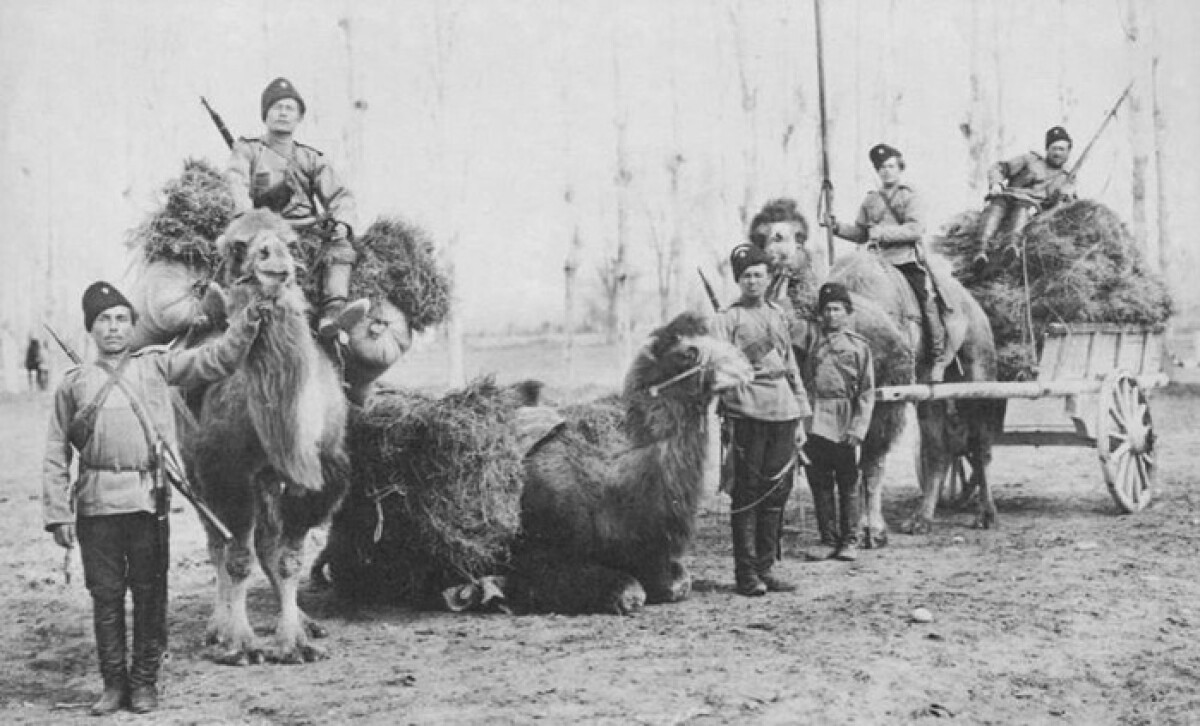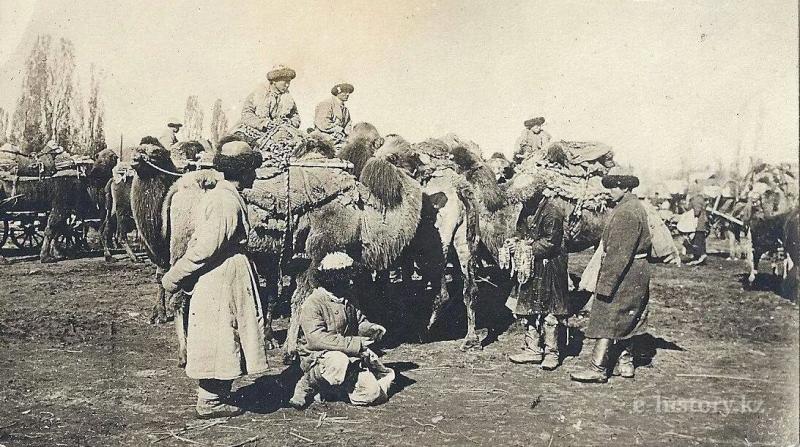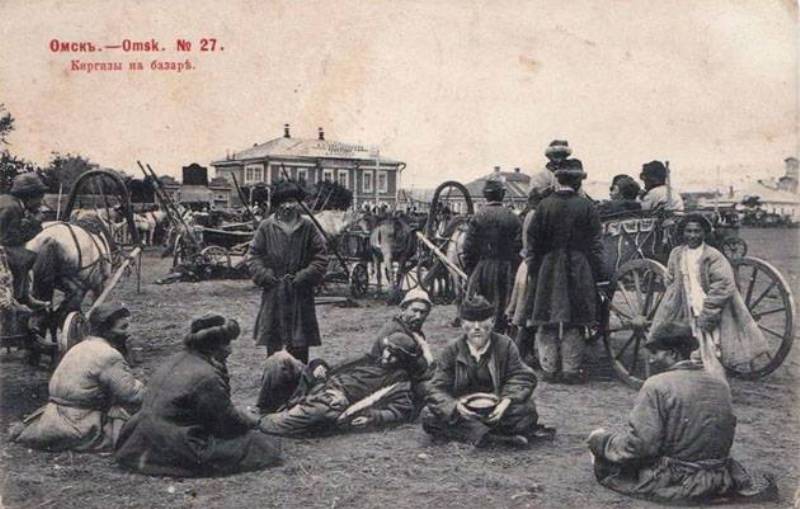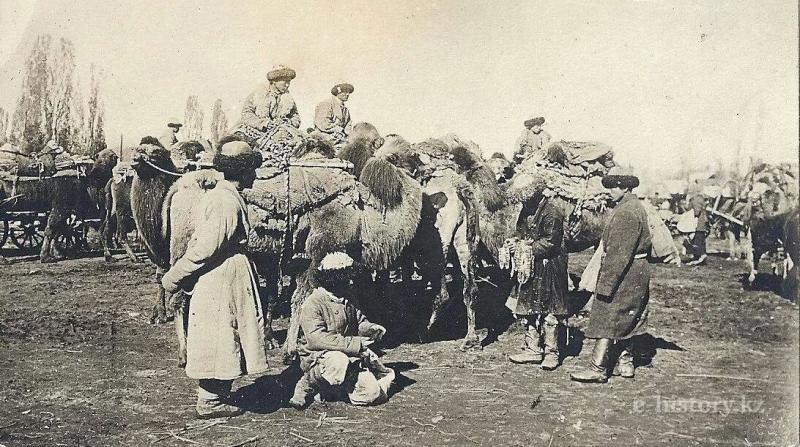
Russian prisoners, on the Kazakh land, left records not only about the experiences that have fallen to their lot, but also a lot of information about the Kazakh history of those times.
In addition to the data registered in the reports of special expeditions, researchers, in the diaries and memories of travelers, about the life of Kazakhs we can get a little information from the manuscripts of Russian prisoners who were in captivity. One of such information is the materials of Russian officials who left notes about the Kazakh people.
First I would like to draw attention to the notes of a doctor, a Russian officer Savva Bolshoi, who came to the Kazakhs who took him prisoner.
In 1803, the doctor, being in the Kazakh steppe, was part of the Bukhar trade caravan. On one of these trips, he gets a head wound in the village of Muzbel, and falls into captivity to the Kazakhs.

The prisoner was secured and robbed. A few days later, reaching the Syrdarya, the doctor is transferred to the fourth person. Hungry and very thirsty, he glances at the wineskin, trying to make them understand that he wants to drink. But the Kazakhs do not react to his actions. After that one of the Kirghiz (Kazakhs) takes him.
For nine months, being among the nomads, he writes down everything that is happening around him. Fortunately, then the Kazakh Sultan Abilgazy and Orenburg's leadership come to an agreement, and S. Bolshoi returns to Russia.
In his notes the doctor writes that he paid special attention to the nomadic life of the Kazakhs, to their way of life and customs. There are also reports that since the capture, the Kazakhs reacted differently to the doctor.

He writes: "At first I often heard: "Look at this Russian." Also he was forced to do hard work. "If I were fed normally, I would do their job," he writes. Next is a description of how he was fed: after work, they usually gave soup, sometimes soup was brought before bed. At lunchtime, basically, they gave the oatmeal. I did not eat much meat, I ate it rare. Also, sour milk or kefir, sometimes diluted with water, was often given. According to these records, the Kazakh society at that time was engaged mainly in cattle breeding, so the food was meat.
Abylgazy Kaiyp takes S. Bolshoi from the house of Teleu to send him to Russia. The Kazakhs, basically, called him Saba, Sababai. The doctor was also interested in schools in the villages, and in the disciplines studied in the same area, after which he left the following information: the Kazakhs do not have their schools, mosques, and most people can neither read nor write in their own language. At the same time, astrology is not developed, but every Kazakh knows the polar star (the big bear) and so on. During the lessons they taught to play musical instruments such as pipe (sybyzgy), balalaika and whistle (kobyz).
About domestic conditions of the Kazakhs he writes: "As domestic items they use cauldron, wooden cups, wineskins, etc. Food is prepared from the meat of a ram, goats, horses and cows. For this, they simply boil meat in water, adding salt, and eat. This dish they call "besbarmak". Then they drink broth. They also eat wheat and millet. As a drink - water, milk, oxidized milk (kefir), koumiss, and also make a kurt. Koumiss has many healing properties. Of clothes, the Kazakhs, in general, wear a chapan, which is sometimes made of silk; a fur coat, a belt, foot cloths, boots, trousers, a hat, a woman's dress, saukele, kimeshek, scarf, beads, braids, etc.

About the economic state of the Kazakh people he writes: with regard to production and trade: cattle breeding is the first place. From animals, preference is given to horses, then to sheep and goats, and only then to cows. The cow is very uncomfortable for nomadism. They also got dogs and cats. Fishery is not a common type of farming among the Kazakhs. Usually they are engaged in fishing only for pastime and sometimes for fun in their spare time. They go hunting with their dogs and golden eagles. And the weapon used for hunting is the bow and arrow. In spring they are engaged in agriculture in a convenient zone. Basically, they sow barley, wheat and about a dozen varieties of grain crops. In 1804 S. Bolshoi tried to plant tobacco on the bank of the river Syrdarya for the first time and was convinced that it grows well in these regions.
As evidence, one can read the information of A.L. Danzas, who studied the region along the bank of Syrdarya in the same century.
Describing the features of the life of the Kazakhs and the Kazakh steppe, S. Bolshoi in his notes indicated how the steppe people called the months, on the basis of what we came to the conclusion that they did not differ much from the current names, only there are some differences in etymology, as evidenced by the following record: "the Kazakhs have 30 days in a month, and 365 days a year."
Another side of the life of the Kazakhs, which interested the doctor, is their belief. At the same time, he writes that the Kazakhs hold a post only once a year and this post lasts about a month. The Kazakhs are Muslims, in particular, the Sunnis. The control system is divided into three: Khan, Sultan and Bi.
So, in conclusion, we can say that the characteristics of the Kazakh people and descriptions of their lands, which are contained in the records of Russian officials, are valuable information, since in the writings and diaries of researchers and travelers sent to the Kazakh land for research, there are numerous facts from the life of the steppe people of that time.
By Daulet IZTELEU
Translated by Raushan MAKHMETZHANOVA
Use of materials for publication, commercial use, or distribution requires written or oral permission from the Board of Editors or the author. Hyperlink to National Digital History portal is necessary. All rights reserved by the Law RK “On author’s rights and related rights”. To request authorization email to kaz.ehistory@gmail.com or call to (7172) 79 82 06 (ext.111).
